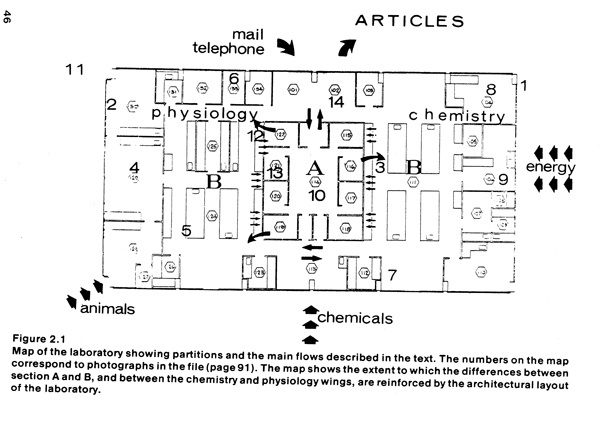Bruno Latour and Steve Woolgar |
Laboratory life: The construction of scientific facts |
| New York: Sage Publications. 1979. |
 we use culture to refer to the set of arguments and beliefs to which there is a constant appeal in daily life and which is the object of all passions, fears, and respect. (p.55)
we use culture to refer to the set of arguments and beliefs to which there is a constant appeal in daily life and which is the object of all passions, fears, and respect. (p.55)
an good definition (though possibly too "1970s" with its continuing use of the word "belief") as long as it is understood that it applies at all "levels" of interaction and that a better term should be found to refer to very local and partial "sets of arguments" (acting networks I would say, to play with Latour's later work). As McDermott and I would say, "culture" might be reserved to the larger of the sets in order to preserve a way to maintain a link with the tradition of work on "culture"
Our job as social scientists is to generate recalcitrant hard facts and passionate objectors that resist social explanations. (p. 101)
We presented the laboratory as a system of literary inscription, an outcome of which is the occasional conviction of others that something is a fact. Such convictions entails the perception that a fact is something which is simply recorded in an article and that it has neither been socially constructed nor possesses its own history of construction... a fact takes on a quality which appears to place it beyond the scope of some kinds of sociological and historical explanation (p. 105)
A fact only becomes such when it loses all temporal qualifications and becomes incorporated into a large body of knowledge drawn upon by others. (p. 106)
one can go further an trace how these others encompass many people outside science. For a comic take on this, see this most perceptive of cartoons.